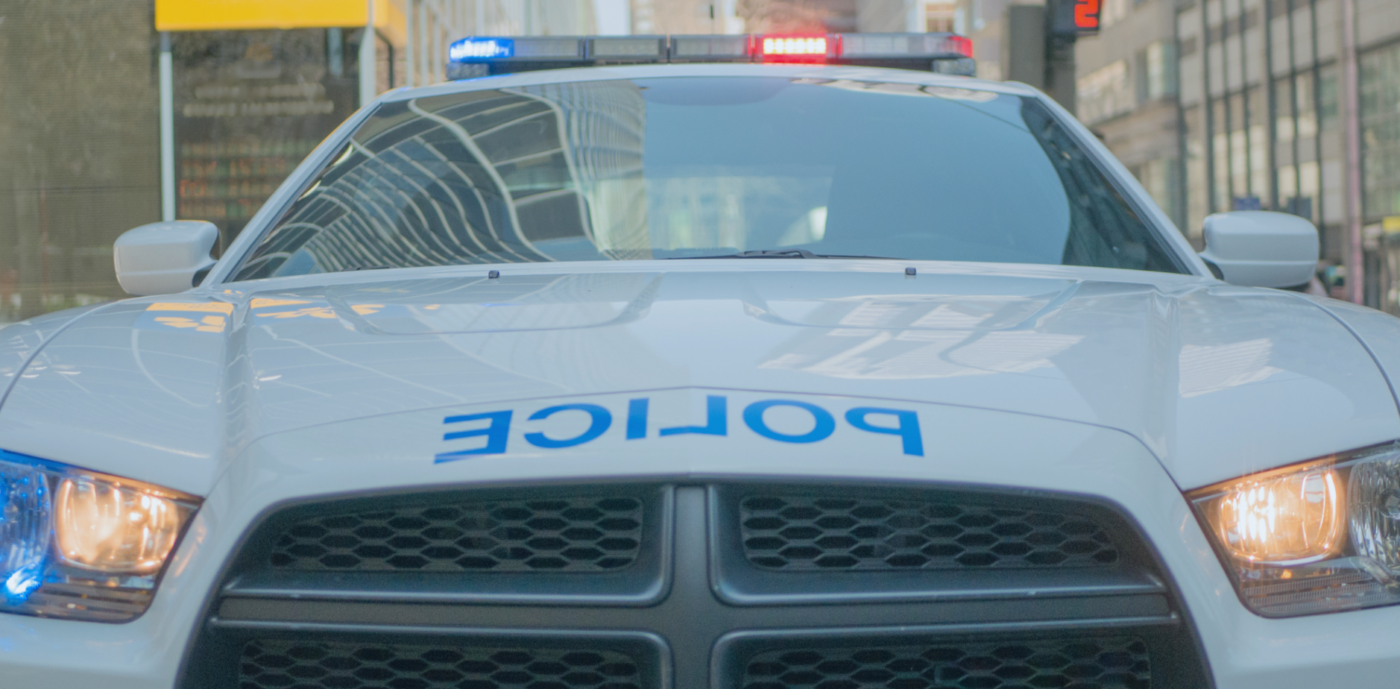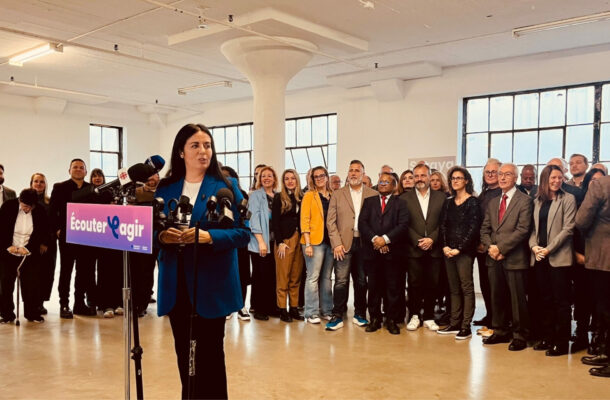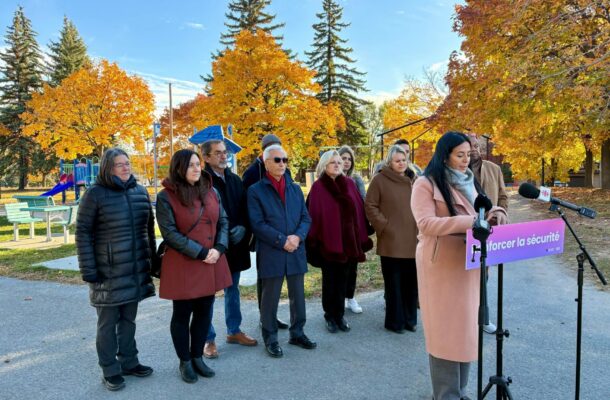
Montreal, February 4, 2020 – One year after the Plante administration’s refusal to deploy body-worn cameras for SPVM officers, a coalition of elected municipal representatives and community groups is returning to the table to demand the rapid implementation of body cams in the police department to effectively combat racial profiling. Ensemble Montreal will table a motion to this effect at the next Municipal Council session.
“With regard to racial profiling, in the past year, there’s been no improvement. On the contrary, things have gotten worse. Last October, a report on police stop-and-checks revealed that indigenous and black people are between 4 and 5 times more likely than whites to be stopped by SPVM officers. As for people of Arab origin, they are on average twice as likely to be stopped as a white person,” said Mr. Abdelhaq Sari, Ensemble Montréal spokesperson for public safety.
Independent Councillor Marvin Rotrand agrees: “For years, the SPVM has been insisting that it takes racial profiling issues seriously with its action plans, policies and employee training. There’s been lots of lip service, but very little concrete action. Last year, it had an opportunity to act by recommending the adoption of body-worn cameras after completing the pilot project. But it refused, claiming the costs were too high. That’s truly regrettable.”
The main arguments that the SPVM advanced for not recommending the use of body cams are also challenged in a new report* prepared for Mr. Rotrand. He claims the SPVM improperly assessed the costs of the project as well as the impact of body cams on public confidence.
“According to the SPVM, it would cost $17.4 million to implement the technology, and $24 million per year in staff and management costs. These costs are excessive and reflect neither reality nor the many technologies on the market. For example, they chose the most expensive technology for video data storage, while other cities are doing it for much less with other technologies,” explained Mr. Rotrand.
“These cameras have proven their worth in other cities. They protect both the residents and the police. The captured video provides an additional tool to complement officers’ event reports, facilitates evidence sharing with Crown prosecutors, improves public perception of the role of police, and decreases vexatious and unfounded complaints against police officers. Our motion calls on the Plante administration to review its previous decision and authorize deployment of body cameras as fast as possible”, said Mr. Sari.
Significant support
The motion presented by Ensemble Montréal is supported by many groups and organizations that defend the rights of Montrealers from diverse origins. Among these are the Center for Research-Action on Race Relations (CRARR), pointing out that such a motion is highly appropriate at the start of Black History Month.
“What Montrealers tell us is that the issue of racial profiling is far from being resolved. We have to put the subject of body cams back on the table. Let’s not forget that the technology has greatly evolved since the pilot project ended in 2017. We are of the opinion that body cameras will protect both police and residents. It’s a win-win solution,” said Mr. Alain Babineau of CRARR.
Also, the Vice President and founding member of the Muslim Association of Montréal-North, Mr Abdelaziz Rzik, lent his voice to those of other agencies in favour of the motion. Mr. Rzik was notably a member of the Arab communities’ SPVM oversight committee from 2008 to 2018.
“I worked for more than 10 years on relations between the Arab community and the SPVM; it’s a subject that’s very dear to me. My goal has always been to combat profiling and enable mutual respect between police officers and the members of my community. Real action is required to enable us to work together: they must deploy these body cameras,” he said.
The motion will be debated at the February 24 session of the Municipal Council.
* Click here to read the report Bilan du projet-pilote de caméras portatives à Montréal: contre-analyse et pistes pour l’avenir (in French) : https://bit.ly/3961Gjp
Motion for the gradual and permanent deployment of body cameras within the SPVM
Whereas, desiring accountability, responsibility, transparency and the strengthening of public confidence in their police service, cities such as New York, Chicago, Los Angeles, Albuquerque, Fort Worth, Oakland and Calgary have chosen to implement the use of body-worn cameras or “body cameras”;
Whereas many American studies have identified a significant decrease in the use of force in police enquiries and associated complaints when police officers wear body cameras;
Whereas the number of stop-and-checks made by the SPVM (Montréal’s police department) rose by 143% between 2014 and 2017 while there was no noticeable increase in the number of criminal incidents in Montréal’s territory;
Whereas since 2010, there have been numerous reports on the SPVM practices of profiling and police checks as well as strategic plans to address racial profiling, but no conclusive results;
Whereas between May 2016 and April 2017, the SPVM conducted a pilot project with the aim of equipping its police officers with body cameras;
Whereas during the pilot project, investigators used the video recordings to improve police practices, as reported in the SPVM document;
Whereas the results of the pilot project showed that 69% of SPVM patrollers recognize that body cameras can be particularly useful in strengthening their testimony to the Court;
Whereas the post-pilot project survey, presented in the SPVM report, revealed that residents were generally more satisfied with the services of police officers equipped with body cameras;
Whereas the 2019 report on the SPVM body cameras pilot project recommended not going forward with deployment, citing among other things excessive costs;
Whereas the 2019 SPVM report greatly overestimated the costs of body camera implementation, including the salary costs;
Whereas Montréal’s administration, acting on the conclusions of the 2019 SPVM report, did not deploy body cameras;
Whereas since the end of the SPVM pilot project, body camera and data storage technologies have improved;
Whereas the captured videos act as an additional tool to complement officers’ event reports, facilitate evidence sharing with Crown prosecutors, improve public perception of the role of police, and decrease vexatious and unfounded complaints against police officers;
Whereas the complete video recordings of a police enquiry or intervention will not only help residents, the police and disciplinary, ethics and judicial bodies clarify the circumstances of such enquiry or intervention, but also encourage victims of abuse to file complaints and question discriminatory behaviour by a police officer;
Whereas the large-scale deployment of body cameras will constitute a concrete measure to counter racial profiling at the SPVM and enhance public confidence in the work of Montréal police officers;
Whereas the Privacy Commissioner of Canada recommends in a report that organizations using body cameras develop policies and procedures to identify the roles and responsibilities of users and a guide to procedures, in addition to requiring the public authority to closely control these recordings so that the privacy and personal information of residents are protected;
It is proposed by Abdelhaq Sari, City Councillor for the Marie-Clarac district;
Seconded by Mary Deros, City Councillor for the Parc-Extension district;
Josué Corvil, City Councillor for the Saint-Michel district;
Marvin Rotrand, City Councillor for the Snowdon district;
That the City of Montréal shall gradually and permanently implement body cameras at the SPVM, beginning on January 1, 2021;
That the City of Montréal adopt strict regulations on the use of body cameras so as to protect personal privacy and the personal information of individuals.





